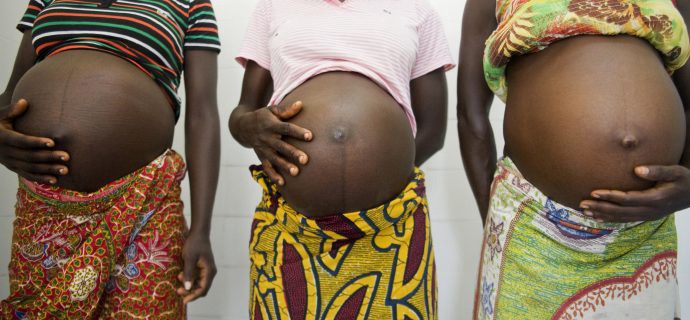Statistics from Eastern Regional Directorate of the Ghana Education Service (GES) indicate that a total of 691 teenage girls returned to school either pregnant or after given birth as at May this year.
The report, representing 27 Municipal and District assemblies, showed that whiles 477 girls went back to school pregnant, 214 had given birth.
Kwaebibrem District recorded the highest with 53 pregnancies followed by Kwahu South and Upper-Manya Krobo districts with 42 cases each.
The Eastern Regional Statistics Officer of GES, Godfred Dzeke, disclosed this during a review meeting of the Back-to-School Advocacy Campaign in Koforidua.
He noted that the statistics excluded six districts - New Juaben South, Asene Manso Akroso, Kwahu West, Birim Central, Lower-Manya Krobo, and Okere.
He explained that all the 33 MDAs in Eastern Region recorded teenage pregnancies, but at the time of collation of the report, six districts had not submitted their reports.
The “back-to-school campaign” was launched by GES in 2021 as an intervention aimed at getting all students to return to school and continue their education after almost a one-year break from academic activities due to the Covid-19 pandemic.
The Girls Education Unit had been spearheading various interventions under the campaign, focusing on sensitisation by engaging identifiable stakeholders, setting guidelines on prevention of pregnancy among girls and facilitation of re-entry into school after childbirth.
The Eastern Region recorded a total of 1,018 teenage pregnancies in 2020 and was ranked the second region with the highest number of teenage pregnancies after Ashanti Region.
This was attributed to many factors including the closure of schools for nine months due to the Covid-19 pandemic.
Madam Patricia Brago Gyamfi, Eastern Regional Girl Child Education Officer, said the campaign sought to raise public awareness on the need for children, especially pregnant girls and those who had given birth, to return to school after the long break.
She said the campaign had been successful but more efforts were needed to clear impediments on the way of those pregnant girls and lactating mothers, and therefore called on stakeholders particularly parents to support girls who have delivered to return to school.
She debunked the notion that the campaign would encourage more girls to get pregnant, adding, preaching prevention and abstinence were part of the campaign.
She also said girls were being strongly advised to stay focus on their academic studies as a holistic approach to achieving gender parity.
Latest Stories
-
Africa doesn’t need more people with power, money or fame but character – Sir Sam Jonah
1 hour -
Celebrating Melvina Amoafo: A Legacy of excellence in Ghana’s capital market
2 hours -
Restoring Meritocracy: A path to effective governance in Ghana
2 hours -
Relief as Agavedzi Sea Defence Project officially begins
2 hours -
Engr. Kwame Adu-Mante celebrates professional milestone with IET Ghana
3 hours -
Elizabeth Amoaa’s quest to empower women, transform lives and raise voices
6 hours -
Gauff beats Sabalenka to win French Open title
6 hours -
Deputy Finance Minister urges diasporans to continue sending remittances despite cedi appreciation
6 hours -
Asante Mamponghene’s burial rites attract thousands of mourners
7 hours -
“The job was waiting for me”: MTN Ghana CFO shares career journey
7 hours -
Frema Foundation Launches ‘Dignity in Bloom’ initiative to tackle period poverty in Ashanti Region
8 hours -
Mayor of Accra calls for renewed commitment to climate action as city commemorates June 3 disaster
8 hours -
Special Prosecutor should lead call for asset publication – Dafeamekpor
8 hours -
Empower360 completes third training session for 30 young women under Ghana Grows Program
9 hours -
Sudan: A new gov’t amid escalating military-political conflicts and a deepening humanitarian crisis
9 hours

